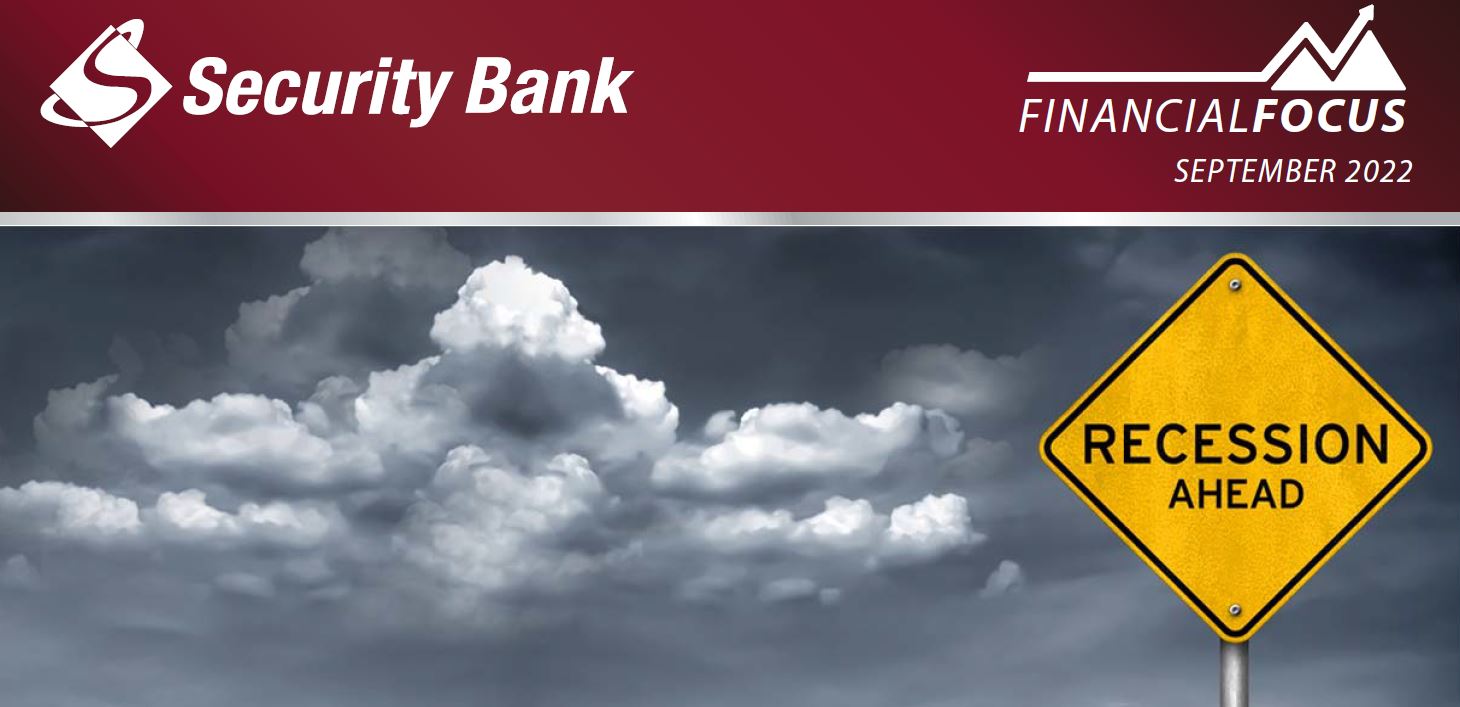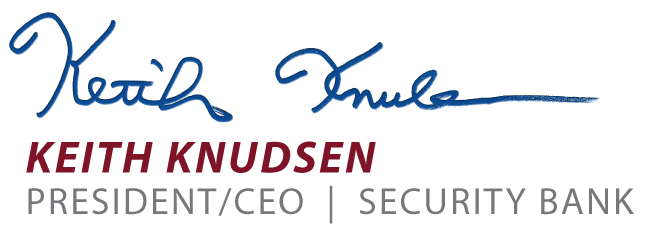
Mitigate Risk in your Small Business during a possible Recession
September 30, 2022
| BankingFocus-Banking Focus | BankingFocus-Educational Opportunities
|

By now you have likely heard that the U.S. economy is, or may be, heading into a recession. The general definition of a recession is two or more consecutive quarters of negative GDP growth. The good news is that there are ways small business owners can work to mitigate certain risks that tend to come with recessions, or at least that tend to become magnified during tougher economic times. This month, we identify a few of these risks and some ways to mitigate them.

|
Managing Small Business Risk During a Recession
 Lee Potts, Vice President/Senior Credit Officer
Lee Potts, Vice President/Senior Credit Officer
You know as well as anyone that there are various elements of risk when it comes to owning and operating a business. Various types of risk are always present, and some types may be prevalent only at certain times. It is likely impossible to fully eliminate risk in general. One crucial strategy in any business, however, is to address risks head-on. Words that come to mind are “manage risk,” “mitigate risk,” or “prevent risk.” Over the years, many of us at the bank have had conversations with customers regarding various risk factors a business may face and how to address them. Based on experience and some recent articles we’ve seen that sum things up very nicely, here are some key risks that your business may be facing, and that warrant extra time and care in addressing.
Credit Risk:
This type of risk comes from your customers that may default on their payments to you for goods sold or services rendered by you, the business owner. Whether your customers are the general public or other businesses, this type of risk can increase during times of recession because many people and businesses often feel a financial squeeze during recessionary time periods. A good way to mitigate this type of risk is to implement bill collection policies that incentivize faster payment. Not that exceptions can’t be made, but remember that getting over-extended with customers or vendors can severely hurt the business in a variety of ways.
Supplier Risk:
This type of risk comes from those that provide the goods and services you need for your business. Either a given supplier will owe your business money, or owe you goods and services that are vital for your business to function properly. Here again, in times of recession, these suppliers, too, may be feeling the financial squeeze. A good way to mitigate this risk is to have open and honest dialogue with these parties, and be prepared to make changes on the fly if necessary.
Market Risk:
This type of risk results in situations where your customers may switch to competitors, or for whatever reason, your products or services become less popular. During a recession, just as already mentioned, when people have less purchasing power, at a certain point they may look for lower-cost options. One way to mitigate this type of risk is to develop various strategies from a marketing standpoint to maintain your market share as best you can. Find ways to add value to the goods and services you offer. Sure, there may be a cheaper alternative out there, but does that cheaper alternative provide added value or go the extra mile?
Operational Risk:
This type of risk may result from disruptions in supply chains, general operations, or some other unforeseen “glitch” in how your business operates. During a recession or times of declining sales, this type of risk can show up. A suggestion to mitigating this type of risk is to diversify supply chain alternatives, find ways to better utilize labor and other resources, and ask a lot of “what if” questions in relation to your operations to identify any potential risk areas.
Financial Risk:
This type of risk may pertain directly to debt obligations with your creditor(s). Another element that sometimes is overlooked is declining asset values, especially if those assets are sold at a loss, for example. During times of recession, businesses may have difficulty meeting obligations simply due to declining sales. A great way to mitigate this risk is to keep an open line of communication with your creditors or lender and work with them to develop back-up plans if the recession would last longer than anticipated.
While these various types of risk are described in very general terms, obviously a few of these would be related to what we do at the bank. Specifically, in terms of Credit Risk and Financial Risk, we have additional information available that might help. Don’t hesitate to reach out to any of our ag and commercial lenders for additional information!